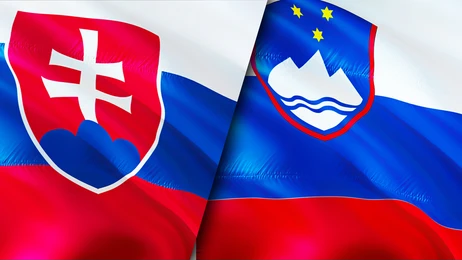Twinning collaboration between the Slovenian and Slovak NCCs
Based on a recommendation by Castiel CSA, which coordinates the activities of national competence centers within the EuroCC project, Slovakia started a collaboration with its Slovenian partner. The main topic is training activities and both countries will provide a series of courses for attendees from both countries. The partnership will also promote the exchange of ideas and experiences and further joint activities.
Twinning je typ spolupráce, pri ktorej dvaja alebo viac rovnocenných partnerov poskytuje svoju expertízu pre vzájomné obohatenie. Každý z partnerov pri tom vyniká inými kompetenciami a navzájom sa tak dopĺňajú. Slovinsko a Slovensko majú na medzinárodnom poli dlhodobo veľmi dobré vzťahy a sme radi že ich v rámci projektu EuroCC môžeme začať budovať aj v oblasti vysokovýkonného počítania.
Spolupráca začala výmenou skúseností s organizovaním vzdelávacích aktivít a prácou s malými a strednými podnikmi. Pokračovať bude výmenou online kurzov, z ktorých prvé sa uskutočnia už v máji a v júni 2022 a budú k dispozícii účastníkom z oboch krajín. Kurz “Neurónové siete s knižnicou TensorFlow” poskytnú školitelia zo slovenského NCC a uskutoční sa 25. – 26. 5. 2022. Kurz “GPU programovanie s CUDA” poskytnú slovinský lektori 20. – 21. 6. 2021. Spolupráca bude pokračovať na jeseň kurzami o paralelnom programovaní vo Fortran-e a o veľkých dátach v prostredí Spark-Hadoop (detaily zverejníme neskôr). Viac informácií a registráciu na kurzy nájdete tu:
Course Neural Networks with TensorFlow
Course GPU programming in CUDA
 BeeGFS in Practice — Parallel File Systems for HPC, AI and Data-Intensive Workloads 6 Feb - This webinar introduces BeeGFS, a leading parallel file system designed to support demanding HPC, AI, and data-intensive workloads. Experts from ThinkParQ will explain how parallel file systems work, how BeeGFS is architected, and how it is used in practice across academic, research, and industrial environments.
BeeGFS in Practice — Parallel File Systems for HPC, AI and Data-Intensive Workloads 6 Feb - This webinar introduces BeeGFS, a leading parallel file system designed to support demanding HPC, AI, and data-intensive workloads. Experts from ThinkParQ will explain how parallel file systems work, how BeeGFS is architected, and how it is used in practice across academic, research, and industrial environments. When a production line knows what will happen in 10 minutes 5 Feb - Every disruption on a production line creates stress. Machines stop, people wait, production slows down, and decisions must be made under pressure. In the food industry—especially in the production of filled pasta products, where the process follows a strictly sequential set of technological steps—one unexpected issue at the end of the line can bring the entire production flow to a halt. But what if the production line could warn in advance that a problem will occur in a few minutes? Or help decide, already during a shift, whether it still makes sense to plan packaging later the same day? These were exactly the questions that stood at the beginning of a research collaboration that brought together industrial data, artificial intelligence, and supercomputing power.
When a production line knows what will happen in 10 minutes 5 Feb - Every disruption on a production line creates stress. Machines stop, people wait, production slows down, and decisions must be made under pressure. In the food industry—especially in the production of filled pasta products, where the process follows a strictly sequential set of technological steps—one unexpected issue at the end of the line can bring the entire production flow to a halt. But what if the production line could warn in advance that a problem will occur in a few minutes? Or help decide, already during a shift, whether it still makes sense to plan packaging later the same day? These were exactly the questions that stood at the beginning of a research collaboration that brought together industrial data, artificial intelligence, and supercomputing power. Who Owns AI Inside an Organisation? — Operational Responsibility 5 Feb - This webinar focuses on how organisations can define clear operational responsibility and ownership of AI systems in a proportionate and workable way. Drawing on hands-on experience in data protection, AI governance, and compliance, Petra Fernandes will explore governance approaches that work in practice for both SMEs and larger organisations. The session will highlight internal processes that help organisations stay in control of their AI systems over time, without creating unnecessary administrative burden.
Who Owns AI Inside an Organisation? — Operational Responsibility 5 Feb - This webinar focuses on how organisations can define clear operational responsibility and ownership of AI systems in a proportionate and workable way. Drawing on hands-on experience in data protection, AI governance, and compliance, Petra Fernandes will explore governance approaches that work in practice for both SMEs and larger organisations. The session will highlight internal processes that help organisations stay in control of their AI systems over time, without creating unnecessary administrative burden.
